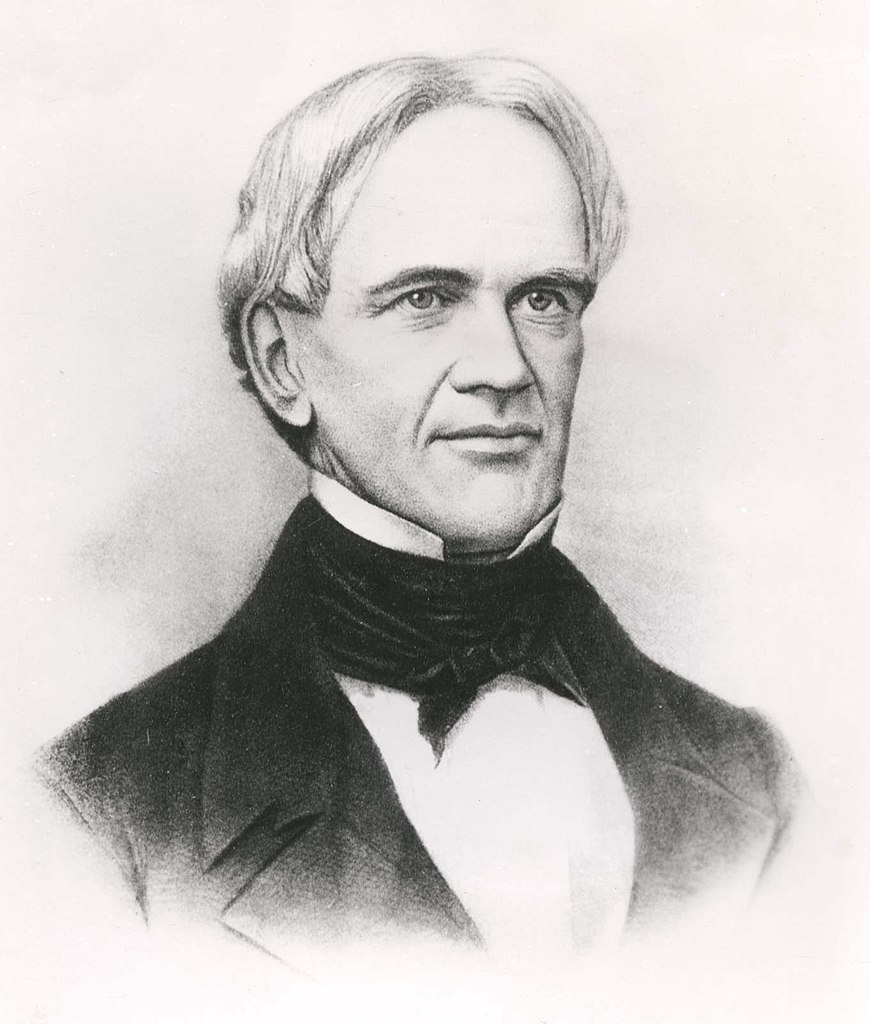

The History of Homework: Why Was it Invented and Who Was Behind It?
- By Emily Summers
- February 14, 2020
Homework is long-standing education staple, one that many students hate with a fiery passion. We can’t really blame them, especially if it’s a primary source of stress that can result in headaches, exhaustion, and lack of sleep.
It’s not uncommon for students, parents, and even some teachers to complain about bringing assignments home. Yet, for millions of children around the world, homework is still a huge part of their daily lives as students — even if it continues to be one of their biggest causes of stress and unrest.
It makes one wonder, who in their right mind would invent such a thing as homework?
Who Invented Homework?
Pliny the younger: when in ancient rome, horace mann: the father of modern homework, the history of homework in america, 1900s: anti-homework sentiment & homework bans, 1930: homework as child labor, early-to-mid 20th century: homework and the progressive era, the cold war: homework starts heating up, 1980s: homework in a nation at risk, early 21 st century, state of homework today: why is it being questioned, should students get homework pros of cons of bringing school work home.

Online, there are many articles that point to Roberto Nevilis as the first educator to give his students homework. He created it as a way to punish his lazy students and ensure that they fully learned their lessons. However, these pieces of information mostly come from obscure educational blogs or forum websites with questionable claims. No credible news source or website has ever mentioned the name Roberto Nevilis as the person who invented homework . In fact, it’s possible that Nevilis never even existed.
As we’re not entirely sure who to credit for creating the bane of students’ existence and the reasons why homework was invented, we can use a few historical trivia to help narrow down our search.
Mentions of the term “homework” date back to as early as ancient Rome. In I century AD, Pliny the Younger , an oratory teacher, supposedly invented homework by asking his followers to practice public speaking at home. It was to help them become more confident and fluent in their speeches. But some would argue that the assignment wasn’t exactly the type of written work that students have to do at home nowadays. Only introverted individuals with a fear of public speaking would find it difficult and stressful.
It’s also safe to argue that since homework is an integral part of education, it’s probable that it has existed since the dawn of learning, like a beacon of light to all those helpless and lost (or to cast darkness on those who despise it). This means that Romans, Enlightenment philosophers, and Middle Age monks all read, memorized, and sang pieces well before homework was given any definition. It’s harder to play the blame game this way unless you want to point your finger at Horace Mann.
In the 19 th century, Horace Mann , a politician and educational reformer had a strong interest in the compulsory public education system of Germany as a newly unified nation-state. Pupils attending the Volksschulen or “People’s Schools” were given mandatory assignments that they needed to complete at home during their own time. This requirement emphasized the state’s power over individuals at a time when nationalists such as Johann Gottlieb Fichte were rallying support for a unified German state. Basically, the state used homework as an element of power play.
Despite its political origins, the system of bringing school assignments home spread across Europe and eventually found their way to Horace Mann, who was in Prussia at that time. He brought the system home with him to America where homework became a daily activity in the lives of students.
Despite homework being a near-universal part of the American educational experience today, it hasn’t always been universally accepted. Take a look at its turbulent history in America.
In 1901, just a few decades after Horace Mann introduced the concept to Americans, homework was banned in the Pacific state of California . The ban affected students younger than 15 years old and stayed in effect until 1917.
Around the same time, prominent publications such as The New York Times and Ladies’ Home Journal published statements from medical professionals and parents who stated that homework was detrimental to children’s health.
In 1930, the American Child Health Association declared homework as a type of child labor . Since laws against child labor had been passed recently during that time, the proclamation painted homework as unacceptable educational practice, making everyone wonder why homework was invented in the first place.
However, it’s keen to note that one of the reasons why homework was so frowned upon was because children were needed to help out with household chores (a.k.a. a less intensive and more socially acceptable form of child labor).
During the progressive education reforms of the late 19 th and early 20 th centuries, educators started looking for ways to make homework assignments more personal and relevant to the interests of individual students. Maybe this was how immortal essay topics such as “What I Want to Be When I Grow Up” and “What I Did During My Summer Vacation” were born.
After World War II, the Cold War heated up rivalries between the U.S. and Russia. Sputnik 1’s launch in 1957 intensified the competition between Americans and Russians – including their youth.
Education authorities in the U.S. decided that implementing rigorous homework to American students of all ages was the best way to ensure that they were always one step ahead of their Russian counterparts, especially in the competitive fields of Math and Science.
In 1986, the U.S. Department of Education’s pamphlet, “What Works,” included homework as one of the effective strategies to boost the quality of education. This came three years after the National Commission on Excellence in Education published “ Nation at Risk: The Imperative for Educational Reform .” The landmark report lambasted the state of America’s schools, calling for reforms to right the alarming direction that public education was headed.
Today, many educators, students, parents, and other concerned citizens have once again started questioning why homework was invented and if it’s still valuable.
Homework now is facing major backlash around the world. With more than 60% of high school and college students seeking counselling for conditions such as clinical depression and anxiety, all of which are brought about by school, it’s safe to say that American students are more stressed out than they should be.
After sitting through hours at school, they leave only to start on a mountain pile of homework. Not only does it take up a large chunk of time that they can otherwise spend on their hobbies and interests, it also stops them from getting enough sleep. This can lead to students experiencing physical health problems, a lack of balance in their lives, and alienation from their peers and society in general.
Is homework important and necessary ? Or is it doing more harm than good? Here some key advantages and disadvantages to consider.
- It encourages the discipline of practice
Using the same formula or memorizing the same information over and over can be difficult and boring, but it reinforces the practice of discipline. To master a skill, repetition is often needed. By completing homework every night, specifically with difficult subjects, the concepts become easier to understand, helping students polish their skills and achieve their life goals.
- It teaches students to manage their time
Homework goes beyond just completing tasks. It encourages children to develop their skills in time management as schedules need to be organized to ensure that all tasks can be completed within the day.
- It provides more time for students to complete their learning process
The time allotted for each subject in school is often limited to 1 hour or less per day. That’s not enough time for students to grasp the material and core concepts of each subject. By creating specific homework assignments, it becomes possible for students to make up for the deficiencies in time.
- It discourages creative endeavors
If a student spends 3-5 hours a day on homework, those are 3-5 hours that they can’t use to pursue creative passions. Students might like to read leisurely or take up new hobbies but homework takes away their time from painting, learning an instrument, or developing new skills.
- Homework is typically geared toward benchmarks
Teachers often assign homework to improve students’ test scores. Although this can result in positive outcomes such as better study habits, the fact is that when students feel tired, they won’t likely absorb as much information. Their stress levels will go up and they’ll feel the curriculum burnout.
- No evidence that homework creates improvements
Research shows that homework doesn’t improve academic performance ; it can even make it worse. Homework creates a negative attitude towards schooling and education, making students dread going to their classes. If they don’t like attending their lessons, they will be unmotivated to listen to the discussions.
With all of the struggles that students face each day due to homework, it’s puzzling to understand why it was even invented. However, whether you think it’s helpful or not, just because the concept has survived for centuries doesn’t mean that it has to stay within the educational system.
Not all students care about the history of homework, but they all do care about the future of their educational pursuits. Maybe one day, homework will be fully removed from the curriculum of schools all over the world but until that day comes, students will have to burn the midnight oil to pass their requirements on time and hopefully achieve their own versions of success.
About the Author
Emily summers.

A Brief Outline of The Education You Need to Becoming a Professional Roofer

Reasons You Should Learn French Now

10 Careers to Pursue After High School if Youre a People Person

How Summer Camp Fosters Social Skills

Is the D Important in Pharmacy? Why Pharm.D or RPh Degrees Shouldn’t Matter

How to Email a Professor: Guide on How to Start and End an Email Conversation

Everything You Need to Know About Getting a Post-Secondary Education

Grammar Corner: What’s The Difference Between Analysis vs Analyses?


Who Invented Homework? A Big Question Answered with Facts

Crystal Bourque

Delving into the intriguing history of education, one of the most pondered questions arises: Who invented homework?
Love it or hate it, homework is part of student life.
But what’s the purpose of completing these tasks and assignments? And who would create an education system that makes students complete work outside the classroom?
This post contains everything you’ve ever wanted to know about homework. So keep reading! You’ll discover the answer to the big question: who invented homework?
Who Invented Homework?
The myth of roberto nevilis: who is he, the origins of homework, a history of homework in the united states, 5 facts about homework, types of homework.
- What’s the Purpose of Homework?
- Homework Pros
- Homework Cons
When, How, and Why was Homework Invented?

Daniel Jedzura/Shutterstock.com
To ensure we cover the basics (and more), let’s explore when, how, and why was homework invented.
As a bonus, we’ll also cover who invented homework. So get ready because the answer might surprise you!
It’s challenging to pinpoint the exact person responsible for the invention of homework.
For example, Medieval Monks would work on memorization and practice singing. Ancient philosophers would read and develop their teachings outside the classroom. While this might not sound like homework in the traditional form we know today, one could argue that these methods helped to form the basic structure and format.
So let’s turn to recorded history to try and identify who invented homework and when homework was invented.
Pliny the Younger

Credit: laphamsquarterly.org
The mention of homework appears in the writings of Pliny the Younger, meaning we can trace the term ‘homework’ back to ancient Rome. Pliny the Younger (61—112 CE) was an oratory teacher, and often told his students to practice their public speaking outside class.
Pliny believed that the repetition and practice of speech would help students gain confidence in their speaking abilities.
Johann Gottlieb Fichte

Credit: inlibris.com
Before the idea of homework came to the United States, Germany’s newly formed nation-state had been giving students homework for years.
The roots of homework extend to ancient times, but it wasn’t until German Philosopher Johann Gottlieb Fichte (1762—1814) helped to develop the Volksschulen (People’s Schools) that homework became mandatory.
Fichte believed that the state needed to hold power over individuals to create a unified Germany. A way to assert control over people meant that students attending the Volksshulen were required to complete assignments at home on their own time.
As a result, some people credit Fichte for being the inventor of homework.
Horace Mann

Credit: commons.wikimedia.org
The idea of homework spread across Europe throughout the 19th century.
So who created homework in the United States?
The history of education and homework now moves to Horace Mann (1796—1859), an American educational reformer, who spent some time in Prussia. There, he learned more about Germany’s Volksshulen, forms of education , and homework practices.
Mann liked what he saw and brought this system back to America. As a result, homework rapidly became a common factor in students’ lives across the country.

Credit: medium.com
If you’ve ever felt curious about who invented homework, a quick online search might direct you to a man named Roberto Nevilis, a teacher in Venice, Italy.
As the story goes, Nevilis invented homework in 1905 (or 1095) to punish students who didn’t demonstrate a good understanding of the lessons taught during class.
This teaching technique supposedly spread to the rest of Europe before reaching North America.
Unfortunately, there’s little truth to this story. If you dig a little deeper, you’ll find that these online sources lack credible sources to back up this myth as fact.
In 1905, the Roman Empire turned its attention to the First Crusade. No one had time to spare on formalizing education, and classrooms didn’t even exist. So how could Nevilis spread the idea of homework when education remained so informal?
And when you jump to 1901, you’ll discover that the government of California passed a law banning homework for children under fifteen. Nevilis couldn’t have invented homework in 1905 if this law had already reached the United States in 1901.

Inside Creative House/Shutterstock.com
When it comes to the origins of homework, looking at the past shows us that there isn’t one person who created homework. Instead, examining the facts shows us that several people helped to bring the idea of homework into Europe and then the United States.
In addition, the idea of homework extends beyond what historians have discovered. After all, the concept of learning the necessary skills human beings need to survive has existed since the dawn of man.
More than 100 years have come and gone since Horace Mann introduced homework to the school system in the United States.
Therefore, it’s not strange to think that the concept of homework has changed, along with our people and culture.
In short, homework hasn’t always been considered acceptable. Let’s dive into the history or background of homework to learn why.
Homework is Banned! (The 1900s)
Important publications of the time, including the Ladies’ Home Journal and The New York Times, published articles on the negative impacts homework had on American children’s health and well-being.
As a result, California banned homework for children under fifteen in 1901. This law, however, changed again about a decade later (1917).
Children Needed at Home (The 1930s)
Formed in 1923, The American Child Health Association (ACHA) aimed to decrease the infant mortality rate and better support the health and development of the American child.
By the 1930s, ACHA deemed homework a form of child labor. Since the government recently passed laws against child labor , it became difficult to justify homework assignments. College students, however, could still receive homework tasks as part of their formal schooling.

Studio Romantic/Shutterstock.com
A Shift in Ideas (The 1940s—1950s)
During the early to mid-1900s, the United States entered the Progressive Era. As a result, the country reformed its public education system to help improve students’ learning.
Homework became a part of everyday life again. However, this time, the reformed curriculum required teachers to make the assignments more personal.
As a result, American students would write essays on summer vacations and winter breaks, participate in ‘show and tell,’ and more.
These types of assignments still exist today!
Homework Today (The 2000s)
The focus of American education shifted again when the US Department of Education was founded in 1979, aiming to uplevel education in the country by, among other things, prohibiting discrimination ensuring equal access, and highlighting important educational issues.
In 2022, the controversial nature of homework in public schools and formal education is once again a hot topic of discussion in many classrooms.
According to one study , more than 60% of college and high school students deal with mental health issues like depression and anxiety due to homework. In addition, the large number of assignments given to students takes away the time students spend on other interests and hobbies. Homework also negatively impacts sleep.
As a result, some schools have implemented a ban or limit on the amount of homework assigned to students.
Test your knowledge and check out these other facts about homework:
- Horace Mann is also known as the ‘father’ of the modern school system and the educational process that we know today (read more about Who Invented School ).
- With a bit of practice, homework can improve oratory and writing skills. Both are important in a student’s life at all stages.
- Homework can replace studying. Completing regular assignments reduces the time needed to prepare for tests.
- Homework is here to stay. It doesn’t look like teachers will stop assigning homework any time soon. However, the type and quantity of homework given seem to be shifting to accommodate the modern student’s needs.
- The optimal length of time students should spend on homework is one to two hours. Students who spent one to two hours on homework per day scored higher on test results.
- So, while completing assignments outside of school hours may be beneficial, spending, for example, a day on homework is not ideal.
Explore how the Findmykids app can complement your child’s school routine. With features designed to ensure their safety and provide peace of mind, it’s a valuable tool for parents looking to stay connected with their children throughout the day. Download now and stay informed about your child’s whereabouts during their academic journey.

Ground Picture/Shutterstock.com
The U.S. Department of Education provides teachers with plenty of information and resources to help students with homework.
In general, teachers give students homework that requires them to employ four strategies. The four types of homework types include:
- Practice: To help students master a specific skill, teachers will assign homework that requires them to repeat the particular skill. For example, students must solve a series of math problems.
- Preparation: This type of homework introduces students to the material they will learn in the future. An example of preparatory homework is assigning students a chapter to read before discussing the contents in class the next day.
- Extension: When a teacher wants to get students to apply what they’ve learned but create a challenge, this type of homework is assigned. It helps to boost problem-solving skills. For example, using a textbook to find the answer to a question gets students to problem-solve differently.
- Integration: To solidify the student learning experience , teachers will create a task that requires the use of many different skills. An example of integration is a book report. Completing integration homework assignments helps students learn how to be organized, plan, strategize, and solve problems on their own. Encouraging effective study habits is a key idea behind homework, too.
Ultimately, the type of homework students receive should have a purpose, be focused and clear, and challenge students to problem solve while integrating lessons learned.
What’s the Purpose of Homework?

LightField Studios/Shutterstock.com
A genius is just a talented person who does his homework. Thomas A. Edison, an American inventor and businessman.
Homework aims to ensure individual students understand the information they learn in class. It also helps teachers to assess a student’s progress and identify strengths and weaknesses.
For example, school teachers use different types of homework like book reports, essays, math problems, and more to help students demonstrate their understanding of the lessons learned.
It’s also about:
Reinforcement of Ideas
In essence, the concept of homework is about taking the ideas that teachers have shared in their classes and letting students practice those ideas and test their own knowledge outside of the usual classroom setting. This helps to reinforce what they’ve learned and, all being well, should strengthen their knowledge and understanding of various subjects.
Practice, Practice, Practice
It’s also a question of practice. Typically, the more time we spend practicing something, the better we can get at it. Homework forces students to practice techniques that they’ve been taught at school and should therefore get better at them with repetition.
Parental Involvement
Homework is also a great way to get families involved with the learning process, as students may turn to their moms and dads to help out or guide them with certain tasks, and this can foster a sense of educational engagement in the home, rather than relying solely on teachers to educate children.
Future Preparation
In their professional lives, when students are all grown up, they won’t always have teachers or other people around to guide them. They’ll need to be able to figure things out on their own. Even at higher levels of education—like college—it’s important to be able to learn and study independently, and homework helps prepare kids for that.
Education is the passport to the future, for tomorrow belongs to those who prepare for it today . Malcolm X, an African American revolutionary, Muslim minister and human rights activist.
Does Homework Improve the Quality of Education?
Homework is a controversial topic today. Educators, parents, and even students often question whether homework is beneficial in improving the quality of education.
Let’s explore the pros and cons of homework to try and determine whether homework improves the quality of education in schools.
Homework Pros:
- Time Management Skills : Assigning homework with a due date helps students develop a schedule to ensure they complete tasks on time. Personal responsibility amongst students is thereby promoted.
- More Time to Learn : Students encounter plenty of distractions at school. It’s also challenging for students to grasp the material in an hour or less. Assigning homework provides the student with the opportunity to understand the material.
- Improves Research Skills : Some homework assignments require students to seek out information. Through homework, students learn where to seek out good, reliable sources.
Homework Cons:
- Reduced Physical Activity : Homework requires students to sit at a desk for long periods. Lack of movement decreases the amount of physical activity, often because teachers assign students so much homework that they don’t have time for anything else. Time for students can get almost totally taken up with out-of-school assignments.
- Stuck on an Assignment: A student often gets stuck on an assignment. Whether they can’t find information or the correct solution, students often don’t have help from parents and require further support from a teacher. For underperforming students, especially, this can have a negative impact on their confidence and overall educational experience.
- Increases Stress : One of the results of getting stuck on an assignment is that it increases stress and anxiety. Too much homework hurts a child’s mental health, preventing them from learning and understanding the material.
Some research shows that homework doesn’t provide educational benefits or improve performance, and can lead to a decline in physical activities. These studies counter that the potential effectiveness of homework is undermined by its negative impact on students.
However, research also shows that homework benefits students—provided teachers don’t give them too much. Here’s a video from Duke Today that highlights a study on the very topic.
Homework Today
The question of “Who Invented Homework?” delves into the historical evolution of academic practices, shedding light on its significance in fostering responsibility among students and contributing to academic progress. While supported by education experts, homework’s role as a pivotal aspect of academic life remains a subject of debate, often criticized as a significant source of stress. Nonetheless, when balanced with extracurricular activities and integrated seamlessly into the learning process, homework continues to shape and refine students’ educational journeys.
Maybe one day, students won’t need to submit assignments or complete tasks at home. However, until then, many students have not understood the benefits of completing homework, as it helps them further their education and achieve future career goals.
Before you go, here’s one more question: how do you feel about homework? Do you think teachers assign too little or too much? Get involved and start a discussion in the comments!

Elena Kharichkina/Shutterstock.com
Who invented homework and why?
The creation of homework can be traced back to the Ancient Roman Pliny the Younger, a teacher of oratory—he is generally credited as being the father of homework! Pliny the Younger asked his students to practice outside of class to help them build confidence in their speaking skills.
Who invented school homework?
The invention of school homework is often attributed to Roberto Nevilis, an Italian teacher in the early 1900s. He introduced homework as a method to reinforce lessons outside the classroom. However, similar practices date back to ancient times when students were tasked with memorizing texts and practicing skills at home.
Homework has since evolved into a widely used educational tool, emphasizing independent learning and skill mastery, though debates on its effectiveness continue. Teachers today use homework to help students apply classroom knowledge in practical settings.
Who invented homework as a punishment?
There’s a myth that the Italian educator Roberto Nevilis first used homework as a means of punishing his students in the early 20th century—although this has now been widely discredited, and the story of the Italian teacher is regarded as a myth.
Why did homework stop being a punishment?
There are several reasons that homework ceased being a form of punishment. For example, the introduction of child labor laws in the early twentieth century meant that the California education department banned giving homework to children under the age of fifteen for a time. Further, throughout the 1940s and 1950s, there was a growing emphasis on enhancing students’ learning, making homework assignments more personal, and nurturing growth, rather than being used as a form of punishment.
Was homework invented in 1095 or 1905?
Neither. It’s actually a common myth that has spread a lot due to the internet, which says that an Italian man named Roberto Nevelis invented homework either in 1095 or 1905. The history of homework actually goes back a lot further than 1095, to the days of Ancient Rome, when Pliny the Younger encouraged his students to study and carry out tasks at home.
Why did homework get banned?
Homework was banned in the early 20th century in California as it was believed by some experts at the time that it had negative effects on children’s health. Ladies’ Home Journal led the charge against the idea of homework, and various doctors supported the claim that it was an unhealthy practice.
The picture on the front page: Evgeny Atamanenko/Shutterstock.com

The first day of school is a real challenge for parents on stress resistance. Will…

An aggressive child is not uncommon in the modern world. Unfortunately, for many parents this…

Maybe you’ve heard stories of children becoming computer geniuses overnight with coding instruction. If you’re…
Subscribe now!
Glad you've joined us🎉🎉.
History Cooperative
The Homework Dilemma: Who Invented Homework?
The inventor of homework may be unknown, but its evolution reflects contributions from educators, philosophers, and students. Homework reinforces learning, fosters discipline, and prepares students for the future, spanning from ancient civilizations to modern education. Ongoing debates probe its balance, efficacy, equity, and accessibility, prompting innovative alternatives like project-based and personalized learning. As education evolves, the enigma of homework endures.
Table of Contents
Who Invented Homework?
While historical records don’t provide a definitive answer regarding the inventor of homework in the modern sense, two prominent figures, Roberto Nevelis of Venice and Horace Mann, are often linked to the concept’s early development.
Roberto Nevelis of Venice: A Mythical Innovator?
Roberto Nevelis, a Venetian educator from the 16th century, is frequently credited with the invention of homework. The story goes that Nevelis assigned tasks to his students outside regular classroom hours to reinforce their learning—a practice that aligns with the essence of homework. However, the historical evidence supporting Nevelis as the inventor of homework is rather elusive, leaving room for skepticism.
While Nevelis’s role remains somewhat mythical, his association with homework highlights the early recognition of the concept’s educational value.
Horace Mann: Shaping the American Educational Landscape
Horace Mann, often regarded as the “Father of American Education,” made significant contributions to the American public school system in the 19th century. Though he may not have single-handedly invented homework, his educational reforms played a crucial role in its widespread adoption.
Mann’s vision for education emphasized discipline and rigor, which included assigning tasks to be completed outside of the classroom. While he did not create homework in the traditional sense, his influence on the American education system paved the way for its integration.
The invention of homework was driven by several educational objectives. It aimed to reinforce classroom learning, ensuring knowledge retention and skill development. Homework also served as a means to promote self-discipline and responsibility among students, fostering valuable study habits and time management skills.
Why Was Homework Invented?
The invention of homework was not a random educational practice but rather a deliberate strategy with several essential objectives in mind.
Reinforcing Classroom Learning
Foremost among these objectives was the need to reinforce classroom learning. When students leave the classroom, the goal is for them to retain and apply the knowledge they have acquired during their lessons. Homework emerged as a powerful tool for achieving this goal. It provided students with a structured platform to revisit the day’s lessons, practice what they had learned, and solidify their understanding.
Homework assignments often mirrored classroom activities, allowing students to extend their learning beyond the confines of school hours. Through the repetition of exercises and tasks related to the curriculum, students could deepen their comprehension and mastery of various subjects.
Fostering Self-Discipline and Responsibility
Another significant objective behind the creation of homework was the promotion of self-discipline and responsibility among students. Education has always been about more than just the acquisition of knowledge; it also involves the development of life skills and habits that prepare individuals for future challenges.
By assigning tasks to be completed independently at home, educators aimed to instill valuable study habits and time management skills. Students were expected to take ownership of their learning, manage their time effectively, and meet deadlines—a set of skills that have enduring relevance in contemporary education and beyond.
Homework encouraged students to become proactive in their educational journey. It taught them the importance of accountability and the satisfaction of completing tasks on their own. These life skills would prove invaluable in their future endeavors, both academically and in the broader context of their lives.
When Was Homework Invented?
The roots of homework stretch deep into the annals of history, tracing its origins to ancient civilizations and early educational practices. While it has undergone significant evolution over the centuries, the concept of extending learning beyond the classroom has always been an integral part of education.
Earliest Origins of Homework and Early Educational Practices
The idea of homework, in its most rudimentary form, can be traced back to the earliest human civilizations. In ancient Egypt , for instance, students were tasked with hieroglyphic writing exercises. These exercises served as a precursor to modern homework, as they required students to practice and reinforce their understanding of written language—an essential skill for communication and record-keeping in that era.
In ancient Greece , luminaries like Plato and Aristotle advocated for the use of written exercises as a tool for intellectual development. They recognized the value of practice in enhancing one’s knowledge and skills, laying the foundation for a more systematic approach to homework.
The ancient Romans also played a pivotal role in the early development of homework. Young Roman students were expected to complete assignments at home, with a particular focus on subjects like mathematics and literature. These assignments were designed to consolidate their classroom learning, emphasizing the importance of practice in mastering various disciplines.
READ MORE: Who Invented Math? The History of Mathematics
The practice of assigning work to be done outside of regular school hours continued to evolve through various historical periods. As societies advanced, so did the complexity and diversity of homework tasks, reflecting the changing needs and priorities of education.
The Influence of Educational Philosophers
While the roots of homework extend to ancient times, the ideas of renowned educational philosophers in later centuries further contributed to its development. John Locke, an influential thinker of the Enlightenment era, believed in a gradual and cumulative approach to learning. He emphasized the importance of students revisiting topics through repetition and practice, a concept that aligns with the principles of homework.
Jean-Jacques Rousseau, another prominent philosopher, stressed the significance of self-directed learning. Rousseau’s ideas encouraged the development of independent study habits and a personalized approach to education—a philosophy that resonates with modern concepts of homework.
Homework in the American Public School System
The American public school system has played a pivotal role in the widespread adoption and popularization of homework. To understand the significance of homework in modern education, it’s essential to delve into its history and evolution within the United States.
History and Evolution of Homework in the United States
The late 19th century marked a significant turning point for homework in the United States. During this period, influenced by educational reforms and the growing need for standardized curricula, homework assignments began to gain prominence in American schools.
Educational reformers and policymakers recognized the value of homework as a tool for reinforcing classroom learning. They believed that assigning tasks for students to complete outside of regular school hours would help ensure that knowledge was retained and skills were honed. This approach aligned with the broader trends in education at the time, which aimed to provide a more structured and systematic approach to learning.
As the American public school system continued to evolve, homework assignments became a common practice in classrooms across the nation. The standardization of curricula and the formalization of education contributed to the integration of homework into the learning process. This marked a significant departure from earlier educational practices, reflecting a shift toward more structured and comprehensive learning experiences.
The incorporation of homework into the American education system not only reinforced classroom learning but also fostered self-discipline and responsibility among students. It encouraged them to take ownership of their educational journey and develop valuable study habits and time management skills—a legacy that continues to influence modern pedagogy.
Controversies Around Homework
Despite its longstanding presence in education, homework has not been immune to controversy and debate. While many view it as a valuable educational tool, others question its effectiveness and impact on students’ well-being.
The Homework Debate
One of the central controversies revolves around the amount of homework assigned to students. Critics argue that excessive homework loads can lead to stress, sleep deprivation, and a lack of free time for students. The debate often centers on striking the right balance between homework and other aspects of a student’s life, including extracurricular activities, family time, and rest.
Homework’s Efficacy
Another contentious issue pertains to the efficacy of homework in enhancing learning outcomes. Some studies suggest that moderate amounts of homework can reinforce classroom learning and improve academic performance. However, others question whether all homework assignments contribute equally to learning or whether some may be more beneficial than others. The effectiveness of homework can vary depending on factors such as the student’s grade level, the subject matter, and the quality of the assignment.
Equity and Accessibility
Homework can also raise concerns related to equity and accessibility. Students from disadvantaged backgrounds may have limited access to resources and support at home, potentially putting them at a disadvantage when it comes to completing homework assignments. This disparity has prompted discussions about the role of homework in perpetuating educational inequalities and how schools can address these disparities.
Alternative Approaches to Learning
In response to the controversies surrounding homework, educators and researchers have explored alternative approaches to learning. These approaches aim to strike a balance between reinforcing classroom learning and promoting holistic student well-being. Some alternatives include:
Project-Based Learning
Project-based learning emphasizes hands-on, collaborative projects that allow students to apply their knowledge to real-world problems. This approach shifts the focus from traditional homework assignments to engaging, practical learning experiences.
Flipped Classrooms
Flipped classrooms reverse the traditional teaching model. Students learn new material at home through video lectures or readings and then use class time for interactive discussions and activities. This approach reduces the need for traditional homework while promoting active learning.
Personalized Learning
Personalized learning tailors instruction to individual students’ needs, allowing them to progress at their own pace. This approach minimizes the need for one-size-fits-all homework assignments and instead focuses on targeted learning experiences.
The Ongoing Conversation
The controversies surrounding homework highlight the need for an ongoing conversation about its role in education. Striking the right balance between reinforcing learning and addressing students’ well-being remains a complex challenge. As educators, parents, and researchers continue to explore innovative approaches to learning, the role of homework in the modern educational landscape continues to evolve. Ultimately, the goal is to provide students with the most effective and equitable learning experiences possible.
Unpacking the Homework Enigma
Homework, without a single inventor, has evolved through educators, philosophers, and students. It reinforces learning, fosters discipline and prepares students. From ancient times to modern education, it upholds timeless values. Yet, controversies arise—debates on balance, efficacy, equity, and accessibility persist. Innovative alternatives like project-based and personalized learning emerge. Homework’s role evolves with education.
How to Cite this Article
There are three different ways you can cite this article.
1. To cite this article in an academic-style article or paper , use:
<a href=" https://historycooperative.org/who-invented-homework/ ">The Homework Dilemma: Who Invented Homework?</a>
Leave a Comment Cancel reply

Who invented homework and why? Facts you should know
In today's world, homework is a common practice in education systems worldwide to reinforce learning outside the classroom. But have you ever wondered who invented homework and why?
Everyone who has been a student of any venture is familiar with take-home work as a familiar foe. Students have spent late nights poring over textbooks, struggling to finish assignments, and wondering who conjured up this tedious task. Due to its widespread use, many theories and myths surround its creation, sparking curiosity about its origin.
Homework history/origin of homework
The history of take-home work dates back to ancient civilisations, where writing exercises reinforced learning. In ancient Egypt, students practised hieroglyphic writing, while in Greece, philosophers like Plato and Aristotle advocated for written exercises to enhance knowledge and skills.
The Romans also assigned take-home work, focusing on math and literature. These early forms of take-home work laid the foundation for modern practices.
Who invented homework and why?
Its origin cannot be attributed to a single inventor. Though Italian teacher Roberto Nevilis is credited with inventing take-home work in 1905, this claim needs more solid historical evidence.
Homework practices can be traced to ancient civilisations such as Greece, Rome, and Egypt. Other names associated with the development of take home work include the following:
Pliny the Younger (61—112 CE)
Pliny was an oratory teacher in ancient Rome. He assigned practice tasks to students to improve their public speaking skills.
Johann Gottlieb Fichte (1762—1814)
He was an 18th-century German philosopher who helped develop the Volksschulen (People's Schools). He also made take-home work mandatory, believing it was essential for creating a unified Germany.
Horace Mann (1796—1859)
Did Horace Mann invent homework? Horace Mann did not invent homework. He was a 19th-century American educator and politician who introduced it to the American education system after being influenced by Germany's compulsory schooling.
The concept of homework predates Mann, with roots in ancient civilisations such as Rome, Greece, and Egypt. Mann's advocacy helped make take-home work a common practice in U.S. schools.
Why was homework made?
Homework reinforces learning, supplements classroom instruction, and develops essential skills such as time management and self-discipline. In ancient Rome, Pliny the Elder advocated for assignments to solidify knowledge.
During the Industrial Revolution, take-home work prepared students for the workforce. Later, educators like John Dewey emphasised critical thinking and problem-solving, making take-home work a consistent tool for extending learning beyond the classroom.
When was homework invented?
Its exact date is unknown but dates back to ancient Rome, where Pliny the Younger assigned tasks to students. The modern concept of take-home work evolved, and 19th-century educators like Johann Gottlieb Fichte in Germany and Horace Mann in the United States significantly influenced it.
Was homework invented as a punishment?
The idea behind take home work was not for punishment. The myth that Italian teacher Roberto Nevilis invented take-home work in 1905 (or 1095) to punish students is false. In 1905, the Roman Empire was focused on the First Crusade, and formal education did not exist.
California reportedly banned homework for children under 15 in 1901, making it impossible for Nevilis to have invented take home work in 1905.

What is the purpose of homework?
It helps reinforce learning, develop study habits, and prepare students for independent work. It also helps teachers determine understanding, teaches problem-solving, and keeps parents informed about classroom learning.
Who was the first person to do homework?
The identity of the first person to do homework is unknown, as homework has evolved over centuries. However, Johann Heinrich Pestalozzi, a Swiss educator in the late 18th and early 19th centuries, was an early advocate of homework.
Pestalozzi emphasised home-based assignments to reinforce classroom learning, marking an early formal use of take-home work in education.
Why does homework exist?
Homework exists primarily to reinforce and extend learning that takes place in the classroom. It serves several purposes, including the following:
- Practice: Homework allows students to practice what they have learned in class, reinforcing concepts and helping them develop skills.
- Preparation: It prepares students for upcoming lessons, enabling them to come to class ready to engage with new material.
- Independent learning: Take-home work encourages students to work independently, promoting self-discipline, time management, and responsibility.
- Extension: It extends learning beyond the classroom, allowing students to delve deeper into topics and apply knowledge in different contexts.
Frequently asked questions
As take-home work remains an integral part of modern education, students may grumble about it but cannot deny its value. Here are some questions about its origins and the best answers:
- Why did homework get banned? Take-home work was banned in California in 1901 for students under 15 due to concerns that it jeopardised children's mental and physical health.
- How did the person who invented homework die? According to the myth about the supposed inventor, he is said to have died either in an accident or some gruesome people murdered him.
- What is the concept of homework? It consists of tasks teachers give students to complete outside the classroom.
- Who invented homework in the United States? Educational reformer Horace Mann primarily formalised homework in the late 19th century to reinforce classroom learning and study habits.
The question of who invented homework remains debated, with theories ranging from ancient civilisations to modern educators. Despite the uncertainty, homework has played a significant role in shaping education and is a fundamental aspect of learning.
As published on Briefly , enrolling in accredited distance learning colleges in South Africa is an excellent way to advance your education. Work, family, and other responsibilities should not hinder anyone from progressing academically.
Distance learning in South Africa is a convenient study method, especially for adults. Many colleges and students find this mode of learning cost-efficient. Accredited distance learning colleges in South Africa offer numerous diploma and certificate programs.


Home » College Of William & Mary » Why Was Homework Invented?
Why Was Homework Invented?
Table of Contents
In 1905, an Italian teacher named Roberto Nevilis invented the concept of “homework.” Originally, its purpose was to be used as a punishment for students who were lazy in class or for those who were disobedient or rude to their teacher . This practice became popular and became more frequently used around the world.
Who came up with homework and why?
An Italian pedagog Roberto Nevilis is considered the real “inventor” of homework. He was the person who invented homework in far 1905 and made it a punishment to his students. Since time when was homework invented, this practice has become popular around the world.
Who was the first person to get homework?
Roberto Nevelis of Venice, Italy, is often credited with having invented homework in 1095—or 1905, depending on your sources.
Is homework a waste of time?
Homework is taking up a large chunk of their time, too — around 15-plus hours a week, with about one-third of teens reporting that it’s closer to 20-plus hours. The stress and excessive homework adds up to lost sleep , the BSC says.
Was homework meant to be a punishment?
Does homework actually help.
Homework helps to reinforce classroom learning, while developing good study habits and life skills . Students typically retain only 50% of the information teachers provide in class, and they need to apply that information in order to truly learn it.
Is California banning homework?
In the early 1900s, Ladies’ Home Journal took up a crusade against homework, enlisting doctors and parents who say it damages children’s health. In 1901 California passed a law abolishing homework !
What does homework stand for?
Half Of My energy Wasted On Random Knowledge Product Description. Homework stands for “ Half Of My energy Wasted On Random Knowledge “.
How do I stop stressing my grades?
Stop stressing about your college grades and do these fun things instead
- Set milestones and rewards. Source: Giphy.
- Sleep more. Snuggle in.
- Play sports. Sweat out those frustrations!
- Join a club or fraternity. Your stress could be owed to a lack of outlets to unload.
- Hang out with your friends. An alternative form of therapy.
Should homework be banned?
Homework in elementary school has not been shown to lead to better achievement in school . And too much homework in the higher grades can lead to worsening grades and increased mental and physical issues. So it’s important to be mindful of how much time your child is spending on it each day.
Is 3 hours of homework too much?
That study, published in The Journal of Experimental Education, suggested that any more than two hours of homework per night is counterproductive. However, students who participated in the study reported doing slightly more than three hours of homework each night, on average .
What country gives no homework?
The truth is that there is nearly no homework in the country with one of the top education systems in the world. Finnish people believe that besides homework, there are many more things that can improve child’s performance in school, such as having dinner with their families, exercising or getting a good night’s sleep.
Who created school?
Horace Mann Horace Mann is considered as the inventor of the concept of school. He was born in 1796 and later became Secretary of Education in Massachusetts. He was a pioneer in bringing educational reforms into society.
Does homework cause depression?
However, when homework exceeds, it affects their emotional well-being making them sad and unproductive students who would rather cheat their way through school . Studies documented in the Journal of Experimental Education conclude that homework that exceeds two hours is counterproductive to the health of students.
Who made homework a daily thing?
Going back in time, we see that homework was invented by Roberto Nevilis , an Italian pedagog. The idea behind homework was simple. As a teacher, Nevilis felt that his teachings lost essence when they left the class.
How much homework is too much?
How much is too much? According to the National PTA and the National Education Association, students should only be doing about 10 minutes of homework per night per grade level . But teens are doing a lot more than that, according to a poll of high school students by the organization Statistic Brain.
Does homework affect sleep?
Too much homework can result in lack of sleep , headaches, exhaustion, and weight loss”. Similarly, Stanford Medicine News Center reports that the founder of the Stanford Sleep Disorders Clinic stated, “’I think high school is the real danger spot in terms of sleep deprivation,’ said William Dement, MD, Ph.
Why should teachers not give homework?
Studies have also shown that too much homework can be very unhealthy, making students feel stressed and burnt out . Most teachers give about 1-2 pages of homework which may not seem like a lot but when you add them up it can easily overwhelm a student.
Is homework illegal in the UK?
There have even been subsequent questions about its legal status. Just to be clear: schools are not obliged to set homework, and some don’t . But when schools do set homework, children do need to do it.
Is homework illegal in Canada?
In Canada, some teachers have no-homework policies and a few schools have banned it outright .
Is a homework illegal?
Homework is legal in all US states as there are no state laws banning them . However, schools in different states are free to have their own rules about homework. Some states where some schools (or districts) have banned or limited homework include: Utah.

By Edmund Duncan
Edmund Duncan is an education expert and thought leader in the field of learning. He has dedicated his life to helping students achieve their full potential in the classroom and beyond.
Edmund's work as a teacher, administrator, and researcher has given him a unique perspective on how students learn and what educators can do to foster a love of learning in their students. He is passionate about sharing this knowledge with others, and he frequently speaks at education conferences around the world.
When Edmund isn't working or speaking, he enjoys spending time with his family and friends. He loves traveling and exploring new places, and he is an avid reader who loves learning about new cultures and customs.
You might also like:
Is william and mary a dry campus, is william and mary for rich kids, is william and mary the oldest college in america.
Home » Homework » The Surprising History of Why Homework Was Invented
The Surprising History of Why Homework Was Invented
July 7, 2024 5 min read

Exploring the origins and evolution of homework reveals a complex history that intertwines with the development of educational systems worldwide. From ancient practices to modern-day debates, homework has been both a tool for academic enhancement and a topic of contention. This article delves into why homework was invented, highlighting its multifaceted role in education.
- 0.1 Key Takeaways
- 1.1 Ancient Roots
- 1.2 The Role of Pliny the Younger
- 1.3 Global Historical Perspectives
- 2.1 From Ancient to Medieval Education
- 2.2 The Industrial Revolution and Education
- 2.3 Modern Educational Practices
- 3.1 Pliny the Younger’s Contributions
- 3.2 Educational Reformers
- 3.3 Influential Theorists and Educators
- 4.1 Building Academic Skills
- 4.2 Fostering Responsibility
- 4.3 Enhancing Learning Outside the Classroom
- 5.1 Debates on Effectiveness
- 5.2 Stress and Student Well-being
- 5.3 Balancing Homework with Extracurriculars
- 6.1 Comparative Educational Systems
- 6.2 Impact of Cultural Expectations
- 6.3 Variations in Homework Practices
- 7.1 Technological Integration
- 7.2 Changing Educational Goals
- 7.3 Predictions and Trends
- 8 Conclusion
- 9.1 Who invented homework?
- 9.2 Why was homework invented?
- 9.3 What is the historical significance of homework?
- 9.4 How has the perception of homework changed over time?
- 9.5 What are the main criticisms of homework?
- 9.6 How is homework integrated in different cultures?
Key Takeaways
- Homework has ancient roots, with practices dating back to the Roman era, notably with Pliny the Younger who utilized it to improve oratory skills.
- The purpose of homework has evolved, reflecting shifts in educational objectives from rote learning to developing critical thinking and responsibility.
- Controversies surrounding homework focus on its effectiveness and impact on student well-being, sparking debates on the need for educational reform.
- Cultural variations in homework practices underscore the influence of societal values on educational expectations and student workload.
- Technological advancements predict a future where homework could be more integrated with digital tools, potentially transforming traditional educational methods.
Origins of Homework
Ancient roots.
The concept of homework is not a modern invention but has its roots deeply embedded in ancient civilizations. Homework practices were prevalent across various cultures , including Greece, Egypt, and China, where students were assigned tasks outside of their educational institutions.
The Role of Pliny the Younger
Pliny the Younger, a teacher of oratory in Ancient Rome, is often credited with formalizing homework. He asked his students to practice speaking skills outside of class to build their confidence, marking a significant point in the history of homework.
Global Historical Perspectives
Homework has evolved differently across the world, influenced by cultural, educational, and social factors. This global perspective highlights the diverse approaches to education and the role homework has played in shaping academic practices.
- Exploring the Benefits of Online Classes
- Exploring the benefits of using XYZ homework
- Unlocking the Benefits of Data Entry Homework
- Unlocking Homework Answers: Tips and Strategies
- Top 10 Creative Uses of Homework Clip Art in Educational Materials
Evolution of Homework Through the Ages
From ancient to medieval education.
Homework, which most likely didn’t have a specific term back then, already existed in ancient civilizations like Greece, Rome, and even ancient Egypt. Over time, homework became standardized in our educational systems as the formal education system continued to develop. This natural progression reflects the evolving educational goals and the necessity of learning outside the classroom.
The Industrial Revolution and Education
In the Middle Ages, homework got a bit more structured. Students in monastic schools were required to do readings and write things at home to improve their literacy skills. Fast forward to the 19th century, homework became even more common with the advent of the Industrial Revolution, which emphasized structured education and the need for disciplined study habits outside the school environment.
Modern Educational Practices
The birth of modern homework is often attributed to Roberto Nevilis, an Italian educator, in 1905. He introduced homework as a way to extend learning beyond the classroom and reinforce concepts taught during school hours. His intention was to enhance students’ understanding and retention of academic material by providing additional practice at home. This marked a significant shift towards more formalized homework practices in education systems worldwide.
Key Figures in the History of Homework
Pliny the younger’s contributions.
Pliny the Younger, a figure from ancient Rome, is often credited with creating the first formal homework. He asked his followers to practice speeches at home in preparation for the next day’s oratory. This method not only enhanced their skills but also marked the beginning of structured home learning tasks.
Educational Reformers
Throughout history, various reformers have shaped the way homework is perceived and implemented. Horace Mann is notable for advocating for structured homework in the U.S. schools, emphasizing its role in reinforcing classroom learning. Other reformers focused on the balance between homework and other aspects of student life, advocating for reasonable amounts and meaningful assignments.
Influential Theorists and Educators
The development of homework has been influenced by numerous educational theorists. Roberto Nevilis, often mentioned in discussions about the origin of homework, is said to have introduced it in 1905 to reinforce learning outside the classroom. The contributions of these educators have been pivotal in shaping modern educational practices, where homework is seen as a tool for extending learning beyond the school walls.
Purpose and Objectives of Homework
Building academic skills.
Homework is fundamentally designed to reinforce the lessons taught in the classroom. It allows students to practice new skills, consolidating their understanding and ensuring that knowledge is retained over time. This practice is crucial for mastering complex subjects and preparing for future assessments.
Fostering Responsibility
The routine of completing homework fosters a sense of responsibility and discipline in students. It encourages them to manage their time effectively and develop a work ethic that can benefit them beyond the school environment. Homework assignments also provide an opportunity for students to explore topics more deeply on their own, which can spark a lifelong love of learning.
Enhancing Learning Outside the Classroom
Homework extends learning opportunities beyond the school day and helps students make connections between academic content and real-world applications. It also allows for a personalized learning experience, where students can work at their own pace and focus on areas that might need more attention. This aspect of homework is particularly important in promoting an inclusive educational environment where all students can thrive.
Controversies and Criticisms of Homework
Debates on effectiveness.
The effectiveness of homework has been a contentious issue for decades. Critics argue that homework does not necessarily improve academic performance and may instead lead to negative outcomes such as stress and a diminished interest in learning. This debate has persisted, with some advocating for a reduction or elimination of homework assignments.
Stress and Student Well-being
Homework is often cited as a significant source of stress for students. The pressure to complete assignments can lead to exhaustion, family conflicts, and less time for other activities. These effects are particularly pronounced among low-income students, who may not have access to the same resources as their peers.
Balancing Homework with Extracurriculars
The challenge of balancing homework with extracurricular activities is significant. Students often struggle to find time for personal development, such as sports and hobbies, due to the heavy workload imposed by schools. This imbalance can hinder their overall development and well-being.
Homework in Different Cultures
Comparative educational systems.
Homework practices vary significantly across different educational systems globally. Countries like Finland and South Korea , known for their high educational outcomes, approach homework differently. Finland minimizes homework to reduce student stress while South Korea emphasizes rigorous homework to drive academic success.
Impact of Cultural Expectations
Cultural expectations deeply influence homework norms. In many Eastern cultures, there is a strong emphasis on academic achievement, which often translates into substantial homework loads. Conversely, some Western countries are increasingly questioning the value of excessive homework, advocating for a more balanced educational approach.
Variations in Homework Practices
Homework is not a one-size-fits-all concept. For instance, in the United States, the amount and complexity of homework assigned can vary widely from one school district to another. Similarly, countries like Japan have specific times in the school year when homework is intensified, particularly during examination periods.
The Future of Homework
Technological integration.
The integration of technology in homework is inevitable, with digital platforms becoming the norm for assigning and submitting work. Interactive tools and AI-driven tutoring will likely enhance personalized learning experiences, making homework more engaging and effective.
Changing Educational Goals
As educational goals shift towards more holistic development, homework will evolve to include more project-based and collaborative tasks. These changes aim to develop critical thinking and problem-solving skills, preparing students for real-world challenges.
Predictions and Trends
The future of homework may see a reduction in traditional tasks, focusing instead on enhancing critical thinking and real-world application. Predictions suggest a blend of in-class and home-based learning, with technology playing a pivotal role in bridging the gap between the two.
In exploring the origins and evolution of homework, we’ve uncovered a rich tapestry of educational practices spanning centuries and civilizations. While it’s challenging to credit a single inventor, the concept of homework has undeniably played a pivotal role in shaping educational systems worldwide. From ancient Rome to modern classrooms, homework has been both a tool for academic enhancement and a topic of debate. As we reflect on its historical journey, it becomes clear that homework’s primary purpose—to reinforce learning outside the classroom—remains as relevant today as it was in the past. This exploration not only enriches our understanding of educational history but also invites us to consider how we can optimize homework to better serve future generations of learners.
Frequently Asked Questions
Who invented homework.
Homework can be traced back to the Ancient Roman teacher Pliny the Younger, who is often credited with the creation of homework as a method to help his students develop their oratory skills outside of class.
Why was homework invented?
Homework was invented to extend learning beyond the classroom, reinforce lessons learned during school hours, and build important skills such as responsibility and time management.
What is the historical significance of homework?
Homework has played a crucial role in the educational systems across various cultures, influencing academic progress and personal development of students.
How has the perception of homework changed over time?
Initially seen as a beneficial educational tool, homework has increasingly come under scrutiny for its potential to cause stress and imbalance in students’ lives, leading to debates about its effectiveness.
What are the main criticisms of homework?
Critics argue that homework can lead to excessive stress, reduce time for extracurricular activities, and may not significantly improve educational outcomes.
How is homework integrated in different cultures?
Homework practices vary widely across different educational systems and cultures, influenced by societal values and expectations regarding education.
Effective Kindergarten Homework Strategies That Boost Learning
20 Creative Clip Art Ideas for Enhancing Your Homework…
Finding the best help in homework math: tips and…, leave a reply cancel reply.
Your email address will not be published. Required fields are marked *
Save my name, email, and website in this browser for the next time I comment.

- May 23 Classical Academy says goodbye to first-ever Saudi Arabian foreign exchange student
- May 23 Senior Brady Goe receives lucrative baseball scholarship
- May 10 Chess World Championship Tournament Ends in a Victory for Chinese Grandmaster
- January 31 Did Knives Out Age Like Milk?
- January 25 See How They Run: An Wall-Breaking Whodunnit

Entertainment
Homework: The True Reality Behind It
Sophia Wecker , Editor | March 16, 2021

Photo provided by Sigmund
Homework. Something almost everyone in school— no matter what age, grade or where they live— all dread. But, why do we have homework?
In 1905, an Italian teacher named Roberto Nevilis invented the concept of “homework.” Originally, its purpose was to be used as a punishment for students who were lazy in class or for those who were disobedient or rude to their teacher. This practice became popular and became more frequently used around the world. A few years after it was invented, it became a standard thing that almost all teachers worldwide began regularly giving out to students after school every day or most days.
Students are usually mentally and physically drained when they come home from school, sports, or after they go somewhere after school and having homework assigned to them puts more even stress onto their plates. Whereas other students might like homework or enjoy doing it because it can benefit them academically or might help with avoiding boredom. Either way, there are both positive and negative sides to homework.
Nowadays, teachers assign homework for either what was left over from class or for extra work to help expand upon the topics taught while in school. But, is that really a smart and good reason to assign homework? Like what was mentioned earlier, students like to come home after a long day of school and relax and have some downtime or possibly hang out with their friends and/or family. But if they have assignments that could take them multiple hours to do that are all due by midnight, this erases this precious free time for students.
Though we may hate to admit it, there are some upsides to homework. Students who need extra help or practice on a topic or subject may benefit from additional work through their homework. Others might like some extra practice to better their understanding or to possibly get ahead in a subject to get higher test and quiz scores.
Despite the extra help homework gives, it’s not always necessary. Like mentioned earlier, some students may have a hard time completing homework because of time, their own individual lives and it just might not be needed for some students so it shouldn’t be necessary for them.
Although homework is annoying and isn’t always necessary, we need to continue to do our best and complete this task because it will benefit us later in life. But I do ask teachers to give students a break or to give them time to rest up after long and hard days. On a personal note, homework has always been a struggle for me to get done because of my busy schedule, but as mentioned before, I do ask teachers to give less or no homework, out of the courtesy of students’ time. Although we might need homework for extra help, those who do excel and are carrying good grades in a class do not need extra work. Teachers, please take from this article and help the students in your classrooms to do their best, not by giving them homework, but by understanding their circumstances and their own individual lives.

Red Velvet – Your Sweet New Obsession

Spotify’s Newest Non-Genre

Rating Halloween Candy as Someone Who Hates Food

Mental, Physical, and Emotional: Keep Yourself Healthy

Dear Discouraged Student

Chess World Championship Tournament Ends in a Victory for Chinese Grandmaster

Did Knives Out Age Like Milk?

See How They Run: An Wall-Breaking Whodunnit

Decision To Leave – An Impressive Waste Of Time?

From an Irate Senior to CAHS Administration: A Letter Concerning the 2022-2023 Phone Policy
Comments (10).
Cancel reply
Your email address will not be published. Required fields are marked *
This site uses Akismet to reduce spam. Learn how your comment data is processed .
Logan • Oct 20, 2022 at 11:28 am
if you are doing an essay on homework here are some more websites for 6-8th grade: Johnson, Geoff. “Piling Homework on Kids Is a Mistake That Undermines Work/Life Balance.” Times-Colonist, 09/05 2021. ProQuest; SIRS Issues Researcher, https://explore.proquest.com/sirsissuesresearcher/document/2578243016?accountid=65482 .
Moniuszko, S. M. (2021, 08/23). Heavy Homework Load May Be Detrimental to Health. USA TODAY https://explore.proquest.com/sirsissuesresearcher/document/2564234859?accountid=65482
Patterson, K. (2021, 11/09). Homework Isn’t Helpful in First Grade Or in College. University Wire https://explore.proquest.com/sirsissuesresearcher/document/2617064023?accountid=65482
Logan • Oct 20, 2022 at 11:31 am
also the cites are in APA 7
ethan • Oct 17, 2022 at 7:07 am
you helped my essay
FreezingZozi • Oct 4, 2022 at 8:59 am
why don’t they give homework to students that want or need homework not everyone in a class
Ece • Oct 1, 2022 at 1:43 pm
tysm good story
Ali Syed Karim • Sep 25, 2022 at 6:43 pm
The fact that homework is for all students is annoying, and its original use was just for students who were lazy or who were being disrespectful and disobedient in class. I hate homework.
James • Jun 7, 2022 at 6:02 am
this is relay helpful
Matthew • Apr 7, 2022 at 12:27 pm
James • Jun 7, 2022 at 6:17 am
Karen • Aug 3, 2022 at 6:42 pm
Great story
History of Homework
The institution of homework is deeply embedded in the American culture. How many times as a child have you heard your parents say that you can’t go outside, play games, or get dessert until you have finished your homework? Or how many times have you uttered that phrase to your own children? Although the concept of a homework assignment has been questioned throughout history, and probably will be, time and time again, it is still viewed as something normal, and as a part of every student’s life. Even outside the school, phrases like “you haven’t done your homework on that pitch/project” are used to suggest that a person hasn’t done all they could have done to prepare for a certain challenge.
Now, over time, the public’s attitude toward homework has changed numerous times, keeping in line with then active social trends and philosophies, and that battle is still raging on today. But before we take a look at what the future holds for the concept of homework, let’s take a trip down memory lane first. You will find that the arguments in favor or against homework were almost exactly the same as they are today.
Homework through History
Seeing as primary education at the end of 19th century was not mandatory, student attendance couldn’t be described as regular. The classrooms were a lot different, as well, with students of different ages sitting together in the same class. Moreover, a very small percentage of children would choose to pursue education past the 4th grade. Once they have learned to read, write, and do some basic arithmetic, they would leave school in order to find work or to help around the house. Homework was rare occurrence, because setting aside a few hours for learning each night interfered with their chores and daily obligations.
As education became more available and more progressive at the turn of the 20th century, there was a strong rebellion against homework taking place in academic circles. Even pediatricians got in on the debate, stating that children should not be made to do homework, as it robs them of all the benefits provided by physical activities and time spent outside the house. Seeing as conditions such as the attention deficit disorder were not diagnosed back then, homework was to blame.
This anti-homework movement reached its peak in the 1930s, with a Society for the Abolition of Homework being formed in order to prevent schools from giving students homework, with numerous school districts following their lead. Even in those schools where homework was not abolished, very few homework assignments were given. This continued all the way until the end of the 1950s, which marked a sharp turn in country’s attitude towards homework.
The reason for this was the launch of the Sputnik I satellite by the Soviet Union in 1957. Seeing as the entire Cold War era was marked by the constant competition between USA and the Soviet Union, U.S. educators, teachers, and even parents were afraid that their children, and the entire nation, would be left behind by their Soviet counterparts, who would lead the way into the future, which meant that homework was once again back on the map, and more important than ever.
Things changed again in the late 60s and early 70s. Vietnam War was still raging on, giving birth to civil rights movement and counterculture, which were looking to shake up all of the previously established norms. Homework was yet again under the microscope. It was argued that homework got in the way of kids socializing, and even their sleep, which meant that homework had yet again fallen from grace, just like it had at the beginning of the century.
In the 1980s, the climate changed again, spurred on by the study called A Nation at Risk which blamed the shaky U.S. economy on schools which weren’t challenging their students enough. As a result, the entire school system was labeled as mediocre in an age where the entire country was striving toward excellence, as saw the bright young minds of tomorrow as its way out. There was more of everything: classes, grades, tests, and more homework. This trend spilled over into the 90s, as well.
At the end of the 90s, homework was yet again under the attack. It was cited that children are overworked and stressed out. The increasing demand for tutors was the key argument. If students needed homework assignment help, there was too much of it. But, besides homework help, homework was also viewed as an obstacle for families with two working parents. The only time parents would get to spend time with their children was being usurped, as kids were forced to work on their homework for hours.
Present Day
While few will argue the role homework plays in reinforcing the information taught in class, there is still talk about how much homework is too much. According to certain studies, the effectiveness of homework starts to decline if the students are given more than 90 minutes of homework every day, which is evident by their test results. Current trends are not concerned with whether or not homework has its merits. It does, there is no question about it, but the main goal right now find the right balance between quantity and quality.
Also, homework in a traditional sense might be susceptible to change, because of the increasingly important role modern technology plays in our lives, and it affects the students, as well. We don’t know what the future holds, but one thing is for sure: we should always do our homework and be prepared.

IMAGES
VIDEO
COMMENTS
Feb 14, 2020 · In I century AD, Pliny the Younger, an oratory teacher, supposedly invented homework by asking his followers to practice public speaking at home. It was to help them become more confident and fluent in their speeches. But some would argue that the assignment wasn’t exactly the type of written work that students have to do at home nowadays.
The creation of homework can be traced back to the Ancient Roman Pliny the Younger, a teacher of oratory—he is generally credited as being the father of homework! Pliny the Younger asked his students to practice outside of class to help them build confidence in their speaking skills.
Dec 27, 2023 · Roberto Nevelis, a Venetian educator from the 16th century, is frequently credited with the invention of homework. The story goes that Nevelis assigned tasks to his students outside regular classroom hours to reinforce their learning—a practice that aligns with the essence of homework.
What is the purpose of homework? It helps reinforce learning, develop study habits, and prepare students for independent work. It also helps teachers determine understanding, teaches problem ...
May 31, 2022 · In 1905, an Italian teacher named Roberto Nevilis invented the concept of “homework.” Originally, its purpose was to be used as a punishment for students who were lazy in class or for those who were disobedient or rude to their teacher .
Jul 7, 2024 · Homework has ancient roots, with practices dating back to the Roman era, notably with Pliny the Younger who utilized it to improve oratory skills. The purpose of homework has evolved, reflecting shifts in educational objectives from rote learning to developing critical thinking and responsibility.
For countless generations, homework has been a staple in educational systems worldwide, but have you ever stopped to wonder why homework was invented in the first place? This article takes a deep dive into the history of homework, its evolution, and its purpose in education.
Mar 16, 2021 · In 1905, an Italian teacher named Roberto Nevilis invented the concept of “homework.” Originally, its purpose was to be used as a punishment for students who were lazy in class or...
The origin of homework is a nuanced topic, and attributing its creation to a single individual is challenging. Nevertheless, the roots of this practice can be traced back to influential educational figures who recognized the value of extending learning beyond the classroom walls.
Feb 5, 2016 · Homework was rare occurrence, because setting aside a few hours for learning each night interfered with their chores and daily obligations. As education became more available and more progressive at the turn of the 20th century, there was a strong rebellion against homework taking place in academic circles.